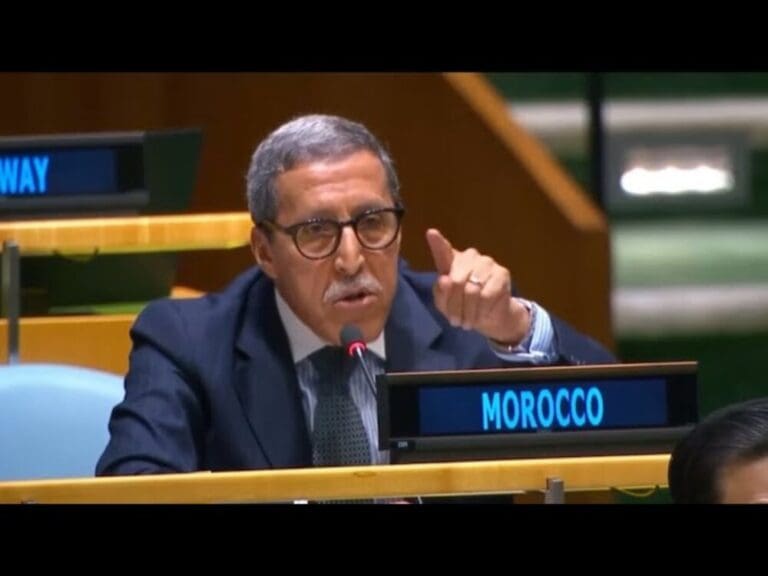Morocco’s UN Permanent Representative argues that the kingdom’s candidacy for a permanent seat on the Security Council is part of a strategic vision and a lasting commitment to multilateralism and international cooperation.
On the sidelines of the 13th edition of the Atlantic Dialogues, organised by the Policy Center for the New South (PCNS), Omar Hilale, Permanent Representative of Morocco to the United Nations, firmly defended the legitimacy of the kingdom to represent Africa as a permanent member of the UN Security Council.
In an interview with the Moroccan news agency, MAP, Hilale stressed that Morocco, under the leadership of King Mohammed VI, has asserted itself as a central and respected actor in the defense of pan-African causes. He recalled the deep and constant commitment of the Moroccan sovereign to the continent, which is reflected in active solidarity with the majority of African states.
“Morocco is eligible to become a member of the Security Council because the fundamental criterion is to
contribute to global peace and security, particularly through participation in peacekeeping missions,” he said.
Since the 1960s, Morocco has been actively involved in United Nations peacekeeping operations. The Royal Armed Forces (FAR) have played a crucial role in several theaters of operations around the world,
particularly in Africa. Omar Hilale highlighted their unique expertise, stemming from their in-depth knowledge of African cultures and languages, as well as their involvement in social initiatives for local populations. These actions, carried out under the directives of the king, promote both dialogue between communities and regional stability.
The ambassador also stressed Morocco’s adherence to universal principles and international rules. The kingdom is distinguished by its respect for the United Nations Charter and the fundamental values that govern international cooperation. This posture reinforces Morocco’s credibility as a preeminent global actor.
Moroccan diplomacy, led by King Mohammed VI, is characterised by a supportive and proactive approach. Omar Hilale highlighted Morocco’s bilateral and trilateral initiatives, focused on mediation, cooperation and humanitarian assistance. He cited concrete examples where the kingdom has been able to intervene to strengthen stability and development in Africa.
“Given its continued commitment to promoting peace, security and sustainable development, Morocco has the necessary assets to occupy a permanent seat on the UN Security Council in the future,” said Hilale.
This ambition is based on solid foundations, both historically and institutionally, reinforced by Morocco’s increasingly predominant role on the international scene.
The Permanent Representative of Morocco maintains that the kingdom’s candidacy is part of a strategic vision and a lasting commitment to multilateralism and international cooperation.
MK/Sf/te/fss/as/APA


